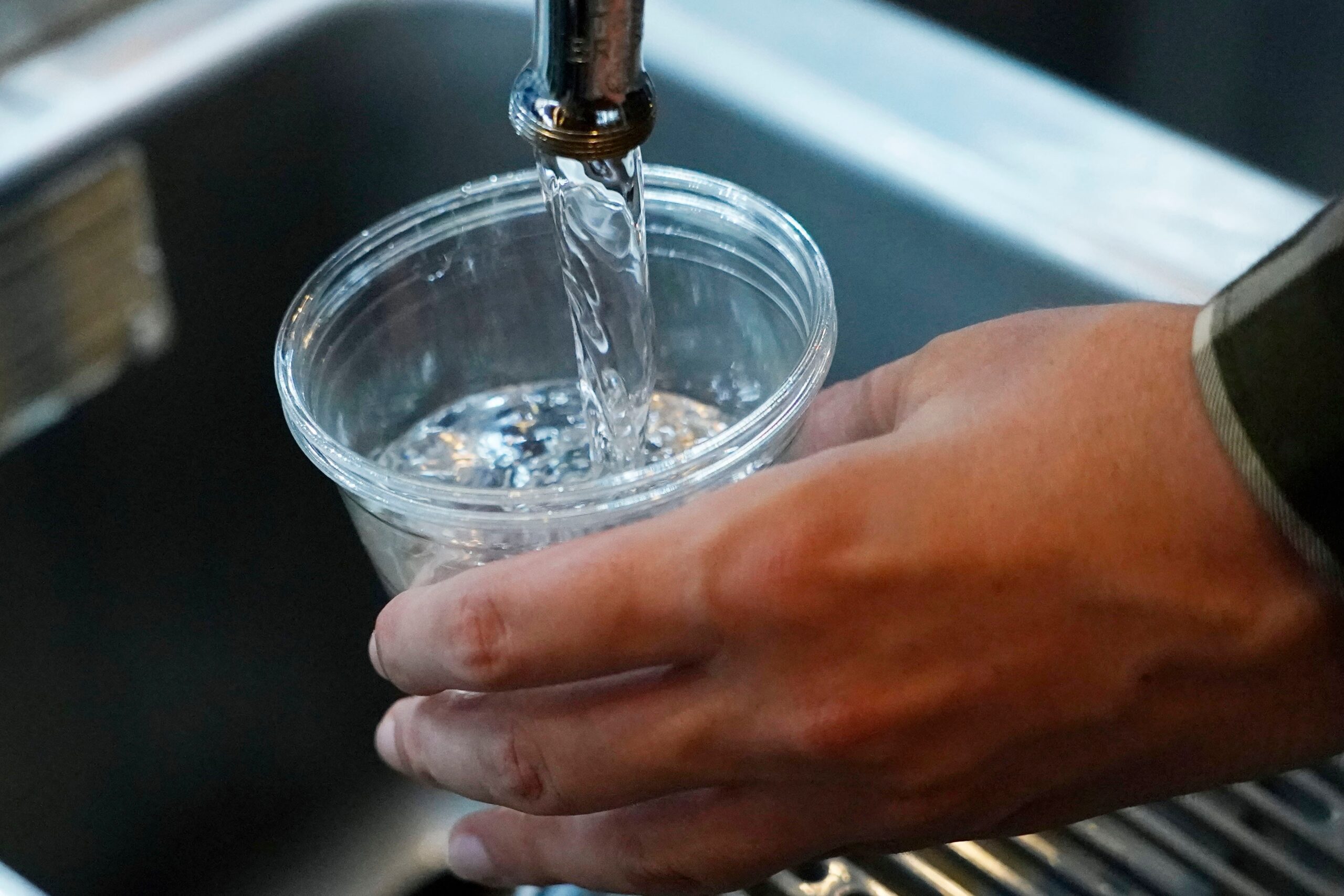- Blockmate Ventures Secures $1.4M Strategic Investment from Tony G-Led Investors in Private Placement
- A Really Smart Way To Score Higher Investment Returns
- 5 Investing Regrets From Financial Professionals
- Invest in Europe with these attractively priced stocks: Fund manager
- Hilton plunges into Moldovan market with multi-million euro investment
A coalition of groups are asking Wisconsin lawmakers to invest almost $1 billion in water infrastructure in addition to policy changes and other preventive measures to protect safe drinking water.
You are viewing: Coalition of groups call for nearly $1B investment for safe drinking water
More than 30 conservation, environmental and citizens groups signed a letter calling on lawmakers to invest $953 million for drinking water infrastructure under the next two-year state budget. The request comes as the nation marks the 50th anniversary of the federal Safe Drinking Water Act.
Peter Burress, government affairs manager with Wisconsin Conservation Voters, said communities are struggling to improve infrastructure in the face of limits on raising revenues. Without state funding, groups say local governments will be forced to delay upgrades or significantly raise water rates to pay for projects.
Stay informed on the latest news
Sign up for WPR’s email newsletter.
“When we’re sitting on a $4 billion surplus, we strongly believe that access to safe drinking water should not be a zero sum competition, and that we should use the resources we have to ensure that everyone can turn on the tap and know that the water coming out of it is safe to drink,” said Burress.
The letter highlights multiple challenges affecting safe drinking water. They include roughly 150,000 lead service lines owned by utilities that need to be replaced, as well as more than 42,000 private wells that exceed the health standard for nitrates and around 90 water systems with high PFAS levels.
Contamination from those sources have been known to cause serious health issues, including blue-baby syndrome, thyroid cancer and developmental delays in children.
See more : Trump, SoftBank CEO announce $100 billion investment in US
“This amount of funding was requested to take full advantage of the federal funding that is available through the Bipartisan Infrastructure Law,” said Tony Wilkin Gibart, executive director of Midwest Environmental Advocates.
Wisconsin has so far received $535 million for water infrastructure under the law. State environmental loan programs are set to receive a total of more than $900 million in additional funding from federal fiscal years 2022 through 2026.
Burress said further state investment could save up to $2 billion annually in avoided health care costs related to lead, nitrate and PFAS contamination based on data extrapolated from multiple studies.
Groups also call for policy changes, preventive action
Groups are also asking lawmakers to remove a 2017 law known as the REINS Act.
The law prevents agencies from working on regulations without legislative approval if the cost to implement them goes beyond $10 million in any two-year period.
Burress said the law doesn’t include a benefit analysis of regulations, saying it’s been a barrier for setting groundwater standards. Around one-third of residents rely on private wells that draw from groundwater.
In a statement, Senate Majority Leader Devin LeMahieu, R-Oostburg, said the REINS Act has become model legislation for other states and the federal government. LeMahieu introduced the bill to prevent excessive administrative costs.
“Wisconsin led on reining in runaway executive power and repealing or limiting REINS would move us backward,” LeMahieu said.
Groups are also urging lawmakers to take steps to prevent harmful contaminants from getting into drinking water or the environment. They’re seeking support for local rental inspection programs to ensure apartments are lead-free, funding for farmers that use practices to reduce nitrate contamination from manure runoff and phasing out the use of PFAS in nonessential consumer products.

Town of Peshtigo resident Cindy Boyle, secretary of Save Our H2O, said she’s disappointed that Wisconsin hasn’t taken measures to get PFAS out of consumer products. States like Minnesota have banned nonessential uses.
See more : Trump Tariffs To Stifle Trade But May Boost Investment
“You can set some policies that incentivize manufacturers if they want to sell in your market so that they’re not going to cause harm to consumers in your state,” Boyle said.
Sen. Eric Wimberger, R-Green Bay, has said he’s open to banning PFAS in certain products.
“I think that’s a good goal to have. I’m all on board for that sort of thing,” Wimberger told WPR. “I’ve never taken any sort of position to change the liability structure for the direct groundwater polluters.”
Republican lawmakers highlight that they worked with Gov. Tony Evers to set aside $125 million to address PFAS contamination under the current two-year budget. But they have been at odds over how to spend the money. It’s been about 18 months since funds were set aside.

GOP lawmakers have refused Evers’ calls to release funds after the governor vetoed a Republican bill that would have used the money to provide grants to communities and landowners.
“Governor Evers vetoed it because he wants to unleash unelected bureaucrats on innocent landowners,” LeMahieu said in a statement.
GOP lawmakers said the bill would protect innocent landowners from paying to clean up PFAS pollution. That provision drew concerns from Evers and others over fears it would limit state regulators’ authority to require polluters to clean up contamination under the state’s spills law.
Groups advocating for funding and other measures say they’re hopeful that safe drinking water will be a bipartisan issue in the next legislative session. The request is unlikely to gain traction in the Republican-controlled state Legislature, but both parties will be vying for control of state government in the next election.
Wisconsin Public Radio, © Copyright 2024, Board of Regents of the University of Wisconsin System and Wisconsin Educational Communications Board.
Source: https://magnacumlaude.store
Category: News

